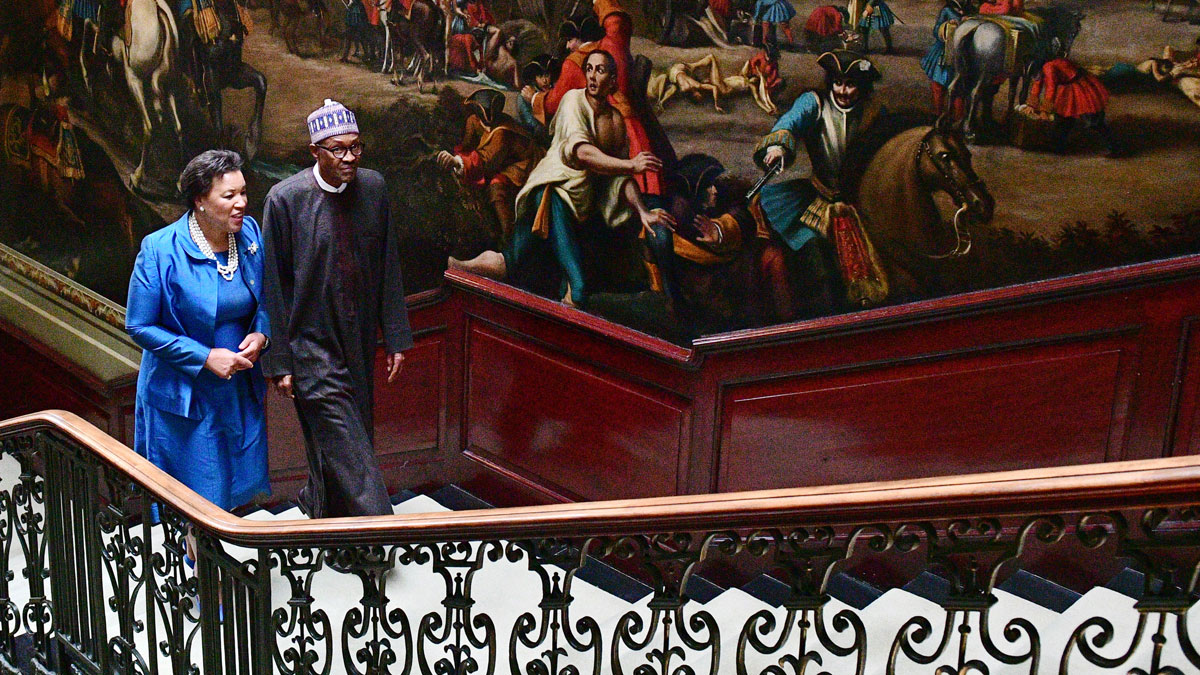Anti-corruption summit: Who is going and what's on the agenda
Will David Cameron's conference be genuinely game-changing or a hypocrites' ball?

A free daily email with the biggest news stories of the day – and the best features from TheWeek.com
You are now subscribed
Your newsletter sign-up was successful
David Cameron is hosting an international summit aiming to expose and tackle corruption around the world.
It has the potential to be "genuinely game-changing", says Dr Dan Hough, the director of the Sussex Centre for the Study of Corruption. "But, as with all these things, the devil will be in the detail," he writes in the New Statesman.
Others warn today's event could be overshadowed by the PM's diplomatic gaffe on Tuesday, when he said that some "fantastically corrupt" countries – namechecking Nigeria and Afghanistan in particular - would be attending.
The Week
Escape your echo chamber. Get the facts behind the news, plus analysis from multiple perspectives.

Sign up for The Week's Free Newsletters
From our morning news briefing to a weekly Good News Newsletter, get the best of The Week delivered directly to your inbox.
From our morning news briefing to a weekly Good News Newsletter, get the best of The Week delivered directly to your inbox.
Who is going?
Representatives from more than 40 nations will join business leaders, campaigners and a diverse range of anti-corruption experts at Lancaster House, London.
"Cameron has invited all 20 member states within the G20, including Russia, Brazil and South Africa – three countries mired in corruption allegations," says The Guardian.
There will, however, be some notable absences. Despite the recent leak of millions of documents exposing the scale of offshore tax avoidance, Panama will not be sending delegates to the summit. "The British Virgin Islands has also been left off Downing Street's invitation list," says The Independent.
A free daily email with the biggest news stories of the day – and the best features from TheWeek.com
As the global ramifications from the Panama Papers rumble on, the Prime Minister is coming under increasing pressure to crack down on UK-administered tax havens.
What's on the agenda?
No 10 says delegates will "commit to taking practical steps to tackle the problem and make it a genuine global priority" by signing the first ever global declaration against corruption.
As well as addressing issues of financial secrecy, one of the key proposals will be the establishment of an international anti-corruption body to assist law enforcement agencies in addressing money laundering and tax evasion.
The summit will also make a "big play" to start tackling the so-called facilitators of corruption, says Hough in the New Statesman. "The UK government is keen to force the lawyers and the accountants, the bankers and the estate agents to conduct due diligence on where money comes from."
Will anything meaningful be agreed?
There is a real danger that the summit will "turn out to be a hypocrites' ball, the dance floor crowded with kleptocrats posing as clean-up crusaders", says Roger Boyes, the diplomatic editor of The Times.
"A conversation about corruption has to be both global and local," he adds. "It has to examine and expose networks of power and business, not just in Africa but in China, south-east Asia, Russia and, yes, in the City of London and New York too."
Hough also highlights the risk that the summit will simply declare that its agreements should be implemented, but with no obligation to do so. "International summitry is a world full of communiques that soon disappear down to the second or third pages of a Google search," he says.
-
 Why is the Trump administration talking about ‘Western civilization’?
Why is the Trump administration talking about ‘Western civilization’?Talking Points Rubio says Europe, US bonded by religion and ancestry
-
 Quentin Deranque: a student’s death energizes the French far right
Quentin Deranque: a student’s death energizes the French far rightIN THE SPOTLIGHT Reactions to the violent killing of an ultraconservative activist offer a glimpse at the culture wars roiling France ahead of next year’s elections
-
 Secured vs. unsecured loans: how do they differ and which is better?
Secured vs. unsecured loans: how do they differ and which is better?the explainer They are distinguished by the level of risk and the inclusion of collateral
-
 Epstein files topple law CEO, roil UK government
Epstein files topple law CEO, roil UK governmentSpeed Read Peter Mandelson, Britain’s former ambassador to the US, is caught up in the scandal
-
 Iran and US prepare to meet after skirmishes
Iran and US prepare to meet after skirmishesSpeed Read The incident comes amid heightened tensions in the Middle East
-
 Israel retrieves final hostage’s body from Gaza
Israel retrieves final hostage’s body from GazaSpeed Read The 24-year-old police officer was killed during the initial Hamas attack
-
 China’s Xi targets top general in growing purge
China’s Xi targets top general in growing purgeSpeed Read Zhang Youxia is being investigated over ‘grave violations’ of the law
-
 Panama and Canada are negotiating over a crucial copper mine
Panama and Canada are negotiating over a crucial copper mineIn the Spotlight Panama is set to make a final decision on the mine this summer
-
 Why Greenland’s natural resources are nearly impossible to mine
Why Greenland’s natural resources are nearly impossible to mineThe Explainer The country’s natural landscape makes the task extremely difficult
-
 Iran cuts internet as protests escalate
Iran cuts internet as protests escalateSpeed Reada Government buildings across the country have been set on fire
-
 US nabs ‘shadow’ tanker claimed by Russia
US nabs ‘shadow’ tanker claimed by RussiaSpeed Read The ship was one of two vessels seized by the US military